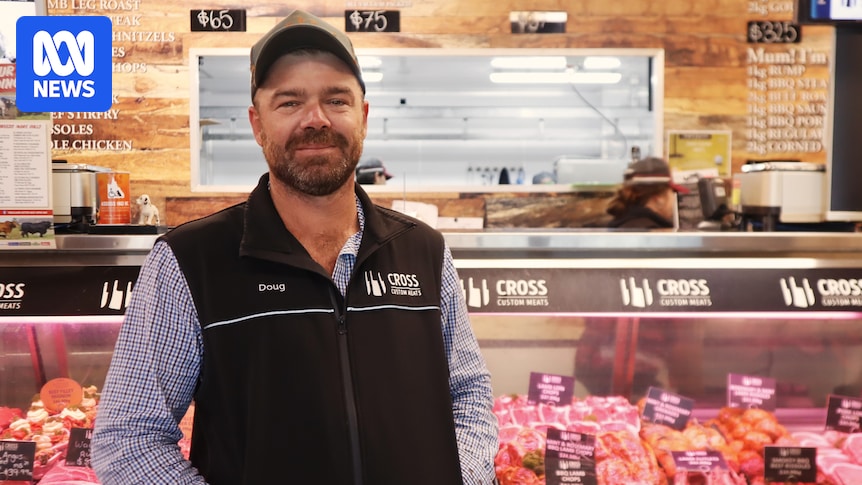
A small butcher shop in Far North Queensland is making waves in the beef industry by expanding its operations to create an “innovative” end-to-end supply chain for beef producers and consumers. Doug Cross, the owner of the Atherton-based butcher shop, has taken a significant step by purchasing a meatworks facility in Innisfail, about 100 kilometers from his original shop. This move is aimed at enhancing the brand’s future and ensuring local processing.
What began as a modest butcher shop seven years ago has transformed into a burgeoning enterprise with an on-site boning room and the established brand, Altitude Beef. The brand now supplies businesses and consumers throughout Queensland and interstate. Mr. Cross emphasized that acquiring the meatworks was a logical progression for maintaining supply chain control and keeping the process local.
Expansion and Supply Chain Control
Doug Cross’s vision for Altitude Beef includes sourcing premium grass-fed, flat back cattle from approximately 80 graziers in the Tablelands and Cassowary Coast. The acquisition of the Innisfail meatworks is seen as a unique opportunity to enhance supply chain efficiency. Currently, the business dispatches 20,000 kilograms of meat weekly, equivalent to 70 head of cattle, with plans to increase this to 100 once the new facility becomes operational.
The brand’s reach extends to dozens of retailers and restaurants across Queensland, the Northern Territory, and New South Wales. Mr. Cross has built strong community support by working closely with producers, wholesalers, and customers. “I can tell you in that box [of meat] whose cattle that is, where their farm was from, all their stories, everything,” he stated, highlighting the personal touch and traceability of his products.
Industry Insights and Consumer Trends
The move by Altitude Beef has garnered attention from industry groups like Meat and Livestock Australia (MLA). Scott Cameron, MLA Group Industry Insights and Strategy Manager, praised the initiative as a “fantastic” and “innovative” approach to bringing meat to market through a vertical end-to-end supply chain.
“It’s very innovative and it’s actually a very interesting way of being able to bring meat to market to consumers having that vertical end-to-end supply chain,” said Scott Cameron.
Despite the ongoing cost-of-living crisis, retail meat sales have increased domestically, along with the price of beef. Cameron attributes this to shifting consumer habits, noting a trend towards at-home consumption. “We’re actually seeing a bit of a move away from food service into at-home consumption,” he explained. “And because it’s a little bit cheaper to eat at home than going out to dinner and nice restaurants, people are affording to buy high-quality meats and … cooking them at home.”
Local Impact and Farmer Support
Local farmers have also expressed their support for the new meatworks. Nick Trompf, a North Queensland stud stock breeder, highlighted the benefits of having a local processing facility. “One of the challenges in the Far North is there’s only one major meatworks here and that’s JBS in Townsville,” he said, noting the cost savings and reduced travel distance with the new facility in Innisfail.
Mr. Trompf praised Doug Cross’s contribution to the beef industry’s growth in the Tropics. “He’s been at the forefront of the introduction of a lot of new breeds by encouraging people to crossbreed and to build the quality of their beef, and the consumer base from that beef over a number of years,” he said. Since launching his single butcher shop in Atherton and targeting the high-end market, Mr. Cross has achieved remarkable success.
Looking Ahead
The expansion of Altitude Beef through the acquisition of the Innisfail meatworks represents a significant shift in the regional beef supply chain. By maintaining local processing and enhancing supply chain control, Doug Cross is positioning his brand for continued growth and success. As consumer habits evolve and demand for high-quality, traceable meat products increases, Altitude Beef is well-placed to meet these needs while supporting local farmers and the broader community.







